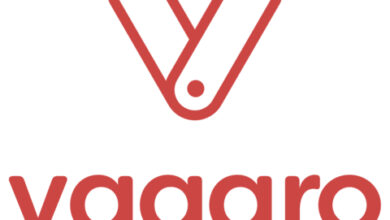Publishers are already using way too much AI. ‹ Literary Hub

A new report on AI and creative industries just dropped, and as expected, it’s full of upsetting and depressing details. The dryly titled “State of Play: Exploring Generative AI‘s Transformative Effects on the Media & Entertainment Industry” was commissioned by Bertelsmann, a giant German media conglomerate with a grim history that includes slave labor and Napster. The report examines how AI is already being used in broadcasting, entertainment, news, music, marketing, and publishing, and where those partnerships may be headed.
This report is fawning and unskeptical, and the introduction makes clear the writers have drunk the Kool-Aid: “By responsibly seizing these opportunities, we believe that Gen AI can enable a new era of innovation and reshape these industries.” The question, as always, is reshape them to whose advantage?
So much to say, this all needs to be read with a grain of salt, but it’s an interesting insight into how the bigwigs are talking amongst themselves. What, according to Bertelsmann, is tech doing for books? Here are some of the report’s lowlights for the book world:
Many publishers are already using generative tools for content creation. The report specifically calls out “Hachette, Harper Collins, and Macmillan Education” who are contracting “technology providers like OpenAI, Jasper, and Google” for content creation.
Penguin Random House has an automated ad tool it’s using. The program is called BookBoost, “a proprietary platform that leverages first-party data, automation, machine learning, and AI to fully automate the process for Facebook and Instagram advertising,” or whatever. The example ads in the report look very muddy and uninteresting, but it already seems to be accomplishing its goal of quickly flooding social media with book ads — the report says that BookBoost is hitting its “key metrics.”
Hachette is putting out a gimmicky book of poetry written by an OpenAI generator. Not sure who this book is for exactly, since so many lame experiments like this have already been floating around online, but disappointed in everyone involved, all the same!
Amazon is of course up to no good, “using Generative AI to summarize product reviews, including those on books.” This will no doubt just make their already janky website look even worse. Why is it that a company that has more money than God still has a Geocities-ass website?
The report’s conclusion is that “the publishing sector has seen AI adoption in areas like automated content generation for marketing and personalised recommendations, but the technology‘s impact on the creative process remains limited.” Good!
As always, all this stuff is best seen as a labor issue. If you think a poem made like a hot dog of stolen words sounds interesting, that’s fine, but no one should lose their job over that experiment. This entire report makes clear to me that the powers that be see AI as a way to make more money by squeezing down their cost of labor.
The most infuriating line in this whole thing was this one: “In contrast, the film and television industries have been slower to adopt AI, as the industry paused to consider the role of AI in the creative processes during the writers and actors strikes of 2023.” This is an insane characterization of the situation last year. It makes it sound like Hollywood, out of its own concern and goodwill, decided to take a break to think about AI while they had some free time. Oh and — not clear if this is related — but the major creative guilds were striking at the time, too.
Another way to read what happened is that strikes work, and organized labor was able to force a conversation that wouldn’t have otherwise happened.
The artists, writers, actors, journalists, copywriters, musicians, and creative professionals who make the media these goons are so eager to disrupt are owed more than to be shoved out in favor of a BookBoost plopped into every bowl of soup.
What’s also left out of this report is that the conversation is already turning against this tech. AI still can’t make anything that’s very good, it’s destroying Google’s search engine, and workers are pushing back. It’s not just the celebrities who are complaining and suing, but also the vast, invisible tech underclass that makes this glittering promised future possible. Just this week, a group of African workers begged President Biden and Kenya’s President Ruto for help with tech companies that are “systemically abusing and exploiting African workers.” Wired wrote about the brutal and underpaid work:
A typical workday for African tech contractors, the letter says, involves “watching murder and beheadings, child abuse and rape, pornography and bestiality, often for more than 8 hours a day.” Pay is often less than $2 per hour, it says, and workers frequently end up with post-traumatic stress disorder, a well-documented issue among content moderators around the world.
There’s exploitation at every level here, and it’s important to remember that every time evangelists like Bertelsmann drool over a picture on their phone of a melting, six-fingered woman selling you a burger, it didn’t come out of thin air.



